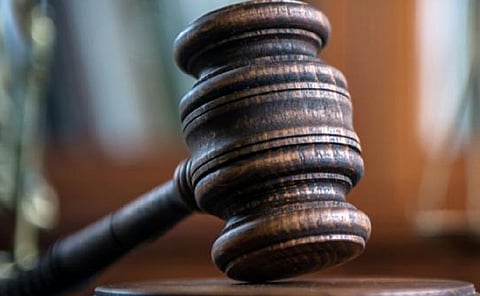

The National Green Tribunal (NGT) on May 24 called for the submission of a factual report from a joint committee on allegations of realignment of the N-Choe in Chandigarh being done without a proper survey.
The joint committee — comprising the district magistrate of SAS Nagar Mohali; Punjab Pollution Control Board and Deputy Commissioner, Chandigarh among others — would examine the matter, visit the site, collect relevant information and submit a factual report within two months, the court said.
Dildeep Singh Basi, a resident of Manauli village in SAS Nagar Mohali district of Punjab, had sent a letter petition. According to the complaint, Punjab’s Department of Housing and Urban Development is taking steps for the realignment of ‘N-Choe’ without any proper survey of the land and water flow. This is likely to cause serious ecological and environmental hazards in the area concerned.
N-Choe is a water drainage channel running through the centre of Chandigarh. It eventually joins the Ghaggar river.
The realignment of ‘N-Choe’ is to take place in Sector-82 and is classified as an irrigation project. But the said realignment cannot be allowed without proper survey.
Water drains directly from Sukhna lake in Chandigarh into the existing N-Choe. Stormwater from Chandigarh is also drained in the same Choe which is likely to cause flooding, if any realignment in such an illegal manner is allowed, it was noted.
The NGT on May 24 directed concerned authorities to file their response on allegations of illegal sand mining in Jharkhand’s Dhanbad district. The authorities included the Jharkhand State Pollution Control Board; Central Pollution Control Board and Deputy Commissioner of Dhanbad. They were asked to file their response before the NGT’s eastern zonal bench in Kolkata. The next hearing of the case would be held on July 26.
An application was registered suo motu by the court on the basis of a news item which appeared in the digital outlet livehindustan.com on April 12, 2024. As per the news item, sandy areas in Dhanbad district have been illegally used by mafias for years in order to mine sand. The article stated that the situation would remain the same this year. It pointed out that not holding an auction was the primary cause for such incidents.
The article highlighted that the mafias are earning around Rs 2,000 in profit by selling the sand through illegal mining. It also alleged that authorities are aware of the situation, yet no action has been taken.
The writeup further stated that all category-two sand areas — which are more than 16 in number — have been captured and are under the control of mafias, who are carrying out illegal mining.
The news item also highlighted the special case of the Barakar river in Jharkhand, wherein illegal mining is being done at around eight places. Not just that, even boats are being used to collect sand from the middle of the river.
The court said the news item raised substantial issues related to compliance of environmental norms, especially compliance of the Sustainable Sand Mining Guidelines, 2016 and the Environment Protection Act, 1986.
The complaint of a pond in Haryana’s Karnal being illegally encroached should first be looked into by the district administration. This should be followed by the constitution of a joint committee comprising Karnal’s district magistrate and the Haryana State Pollution Control Board to look into the matter, the NGT said on May 24.
The committee would visit the site, collect relevant information and should take appropriate preventive, remedial and punitive action against violators in accordance with law if it finds any encroachment or dumping of waste (liquid or solid) in the pond, causing damage to the environment. All this should be done within three months, said the order.
The matter related to the encroachment of a pond which has Unique Identification Registration No. 01HRKNL NSROBRAS133 under the provisions of Haryana Water Resources (Conservation, Regulation and Management) Authority Act, 2020.
A petition stated that a substantial area of the pond has been encroached upon illegally by certain powerful people, who have constructed their residences there.
As a result, the total pond area of about 4-5 acres has reduced to 1 acre. But no action has been taken by the concerned authorities. Untreated sewage is being directly discharged into the pond and even waste is being dumped, causing damage to the environment and creating health hazards for locals.
The NGT referred to the Supreme Court order (Hinch Lal Tiwari vs. Kamala Devi & Ors., (2001) 6 SCC 496) wherein it has been held that the responsibility of maintaining the pond is of the district administration and no pond can be allowed to be encroached upon.
Such water bodies must be protected. Hence, the district administration must take appropriate action for maintenance of ponds and for restoration of their areas in case there is any encroachment.